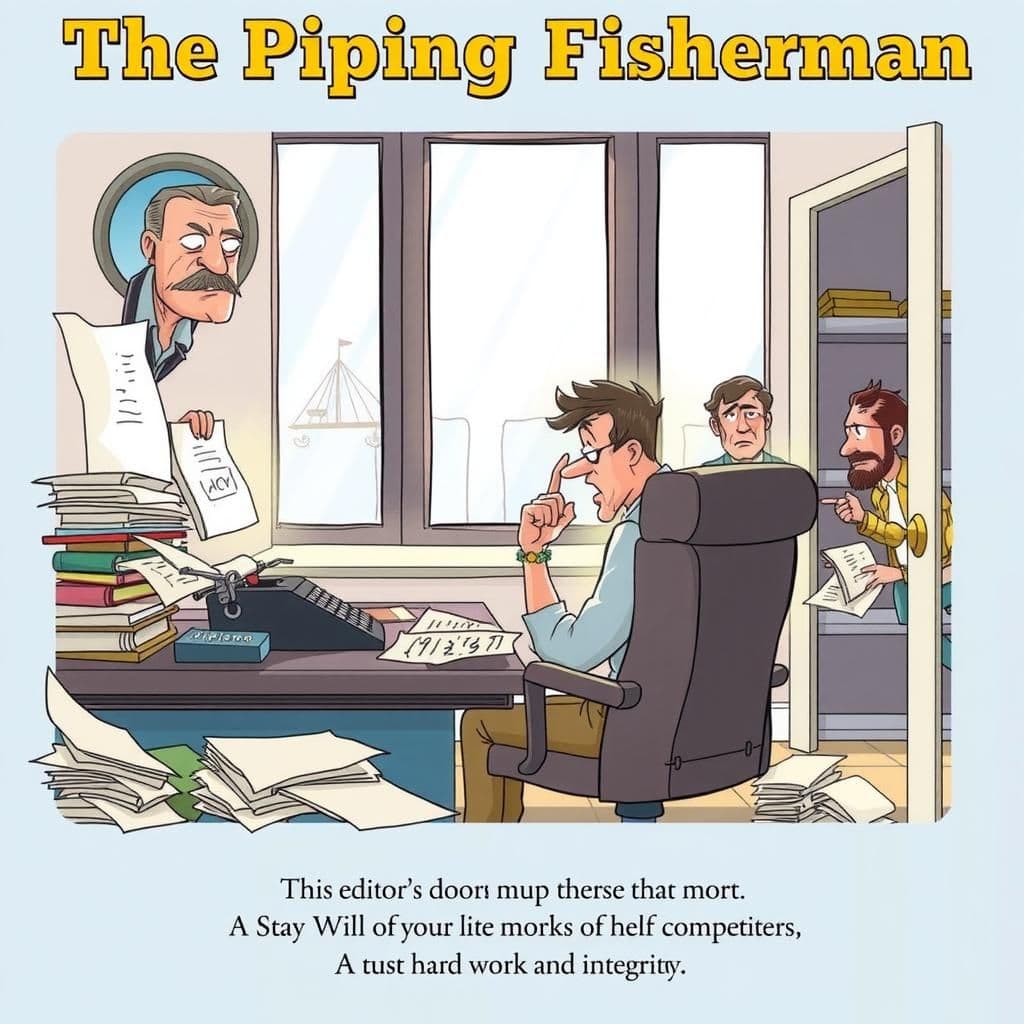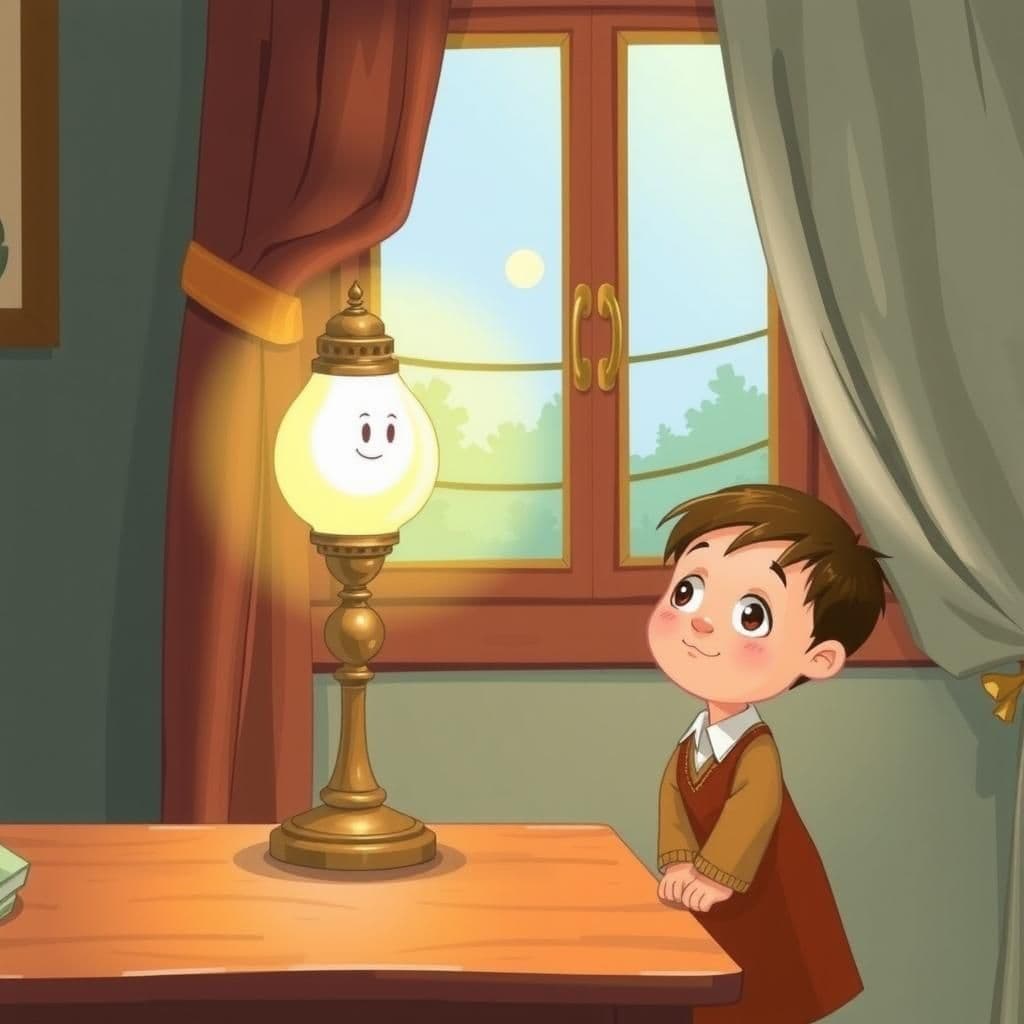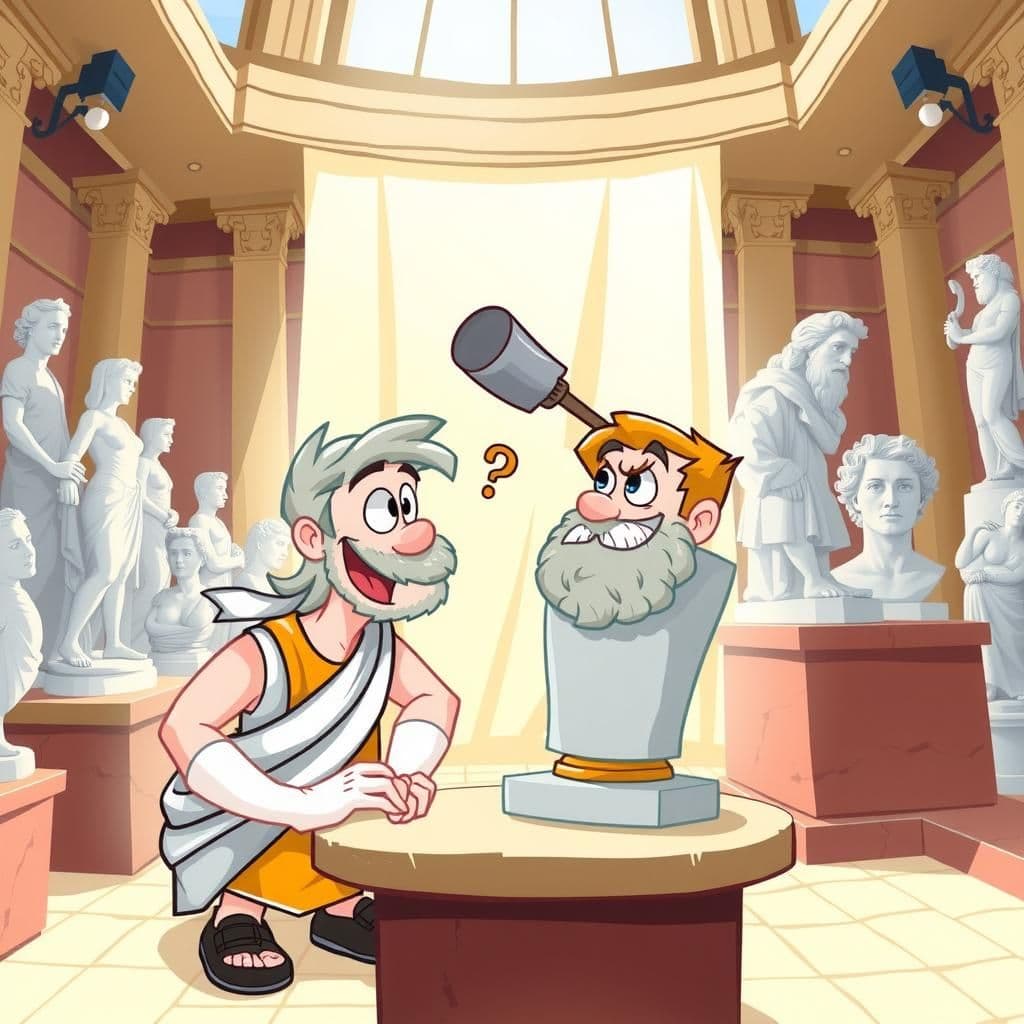The Piping Fisherman
In this simple short story with a moral, an editor, frustrated by a lack of subscribers, decides to stop boasting about the qualities of his paper and instead focuses on genuinely improving it. This shift leads to a remarkable increase in subscriptions, prompting envy among competitors who seek to uncover his secret. Ultimately, the life lesson is clear: true success comes from action rather than empty claims, and the moral of the story remains with the editor until his death.

Reveal Moral
"True success comes from embodying qualities rather than merely claiming them."
You May Also Like

The Lamp
In "The Lamp," a boastful lamp, overly confident in its brightness, claims to outshine the sun but is quickly extinguished by a gust of wind. After relighting it, its owner imparts a life lesson, urging the lamp to embrace humility and provide light quietly, reminding it that even the stars do not need to be reignited. This simple short story conveys a timeless moral found in many famous fables, illustrating the importance of modesty in our pursuits.

The Fly and the Ant
In "The Fly and the Ant," a classic tale from folklore, the boastful fly highlights its glamorous lifestyle and the attention it receives in palaces, while the diligent ant emphasizes the merits of hard work and planning for the future. This short story with moral teaches that vanity is fleeting and often leads to danger, contrasting the superficial allure of the fly with the ant's industriousness and foresight. Ultimately, the moral stories written in this narrative remind us that true security comes from effort and preparation, not from idle boastfulness.

Mercury and the Sculptor
In "Mercury and the Sculptor," Mercury, disguised as a man, visits a sculptor to assess his esteem among mortals. After inquiring about the prices of Jupiter and Juno's statues, he humorously suggests his own statue should be valued higher, only for the sculptor to quip that he'd throw it in for free if Mercury buys the other two. This concise moral story highlights the importance of humility and the sometimes inflated self-worth that can lead to humorous situations.